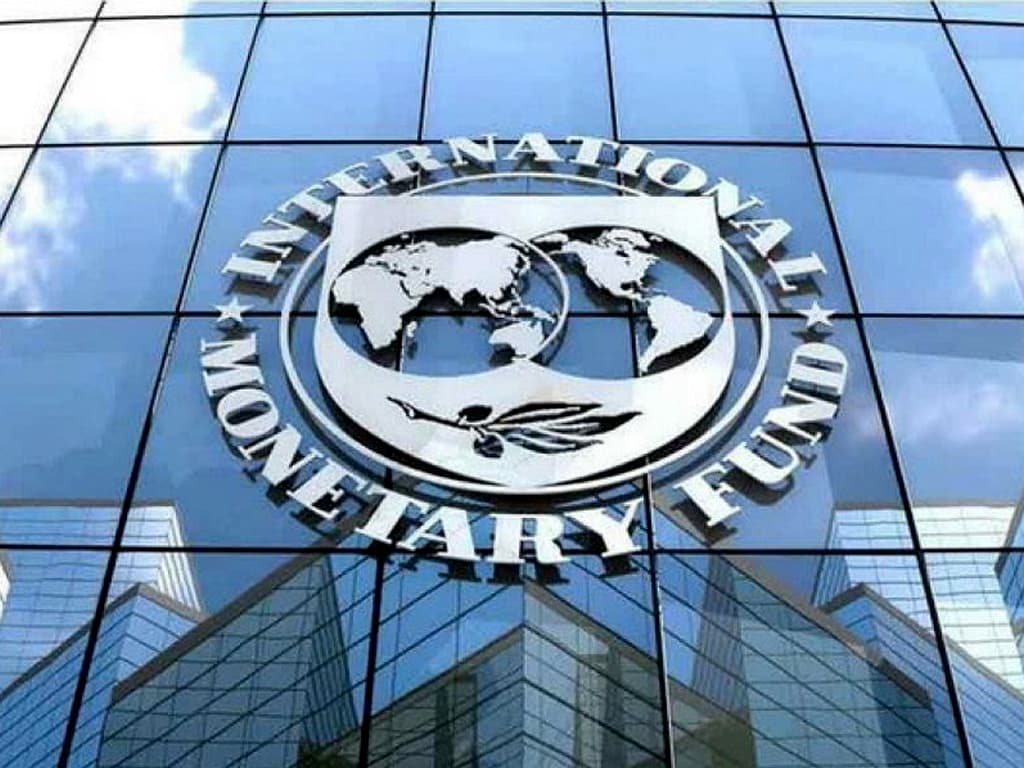The International Monetary Fund has lowered its global growth forecast for 2022 amid rising Covid-19 cases, supply chain disruptions and higher inflation which hamper economic recovery.
In its World Economic Outlook report released on Tuesday, the Fund said it expects global gross domestic product to weaken from 5.9% in 2021 to 4.4% in 2022 — with this year’s figure being half a percentage point lower than previously estimated.
“The global economy enters 2022 in a weaker position than previously expected,” the report noted, highlighting “downside surprises” such as the emergence of the omicron Covid variant, and subsequent market volatility, since its October forecast.
It said the revised outlook is led by growth markdowns in the world’s two largest economies; the U.S. and China.
The IMF said it expects the US economy to grow 4.0% in 2022, 1.2 percentage points lower than previously forecast as the Federal Reserve moves to withdraw its monetary stimulus, even as supply chain disruptions weigh on the economy. The updated outlook also removed President Biden’s signature Build Back Better fiscal policy package from its baseline projection after failure to pass the original bill.
It predicted China’s economy to grow 4.8% this year, down 0.8 percentage points from earlier estimates amid disruptions caused by its zero-Covid policy, as well as “projected financial stress” among its property developers.
Inflation in Focus
The IMF said higher inflation is set to persist for longer than previously anticipated, but added that it should ease later this year, “as supply-demand imbalances wane in 2022 and monetary policy in major economies responds.”
But as always, there are risks to the outlook, said the IMF, such as new COVID-19 variants that could prolong the pandemic and introduce fresh economic disruptions. Supply chain snarls, volatile energy prices, and localised wage pressures could create more uncertainty around inflation, said the Fund, while interest rate increases in advanced economies such as the US could negatively affect emerging and developing economies.
“Rising geopolitical tensions and social unrest also pose risks to the outlook,” IMF First Deputy Managing Director Gita Gopinath said during a virtual news conference on Tuesday.
According to Gopinath, total economic losses from the pandemic are expected to be close to $13.8 trillion through 2024. She also highlighted a recurring theme the Fund has raised since the global economy started its long slog back to pre-pandemic health, namely the widening recovery gap between richer and poorer nations.
“Even as recoveries continue, the troubling divergence in prospects across countries persists,” said Gopinath, noting that advanced economies are expected to return to their pre-pandemic trends this year, while several emerging markets and developing economies “are projected to have sizeable output losses into the medium term.”
The IMF downgraded its outlook for Brazil and Mexico, Latin America’s biggest economies, as well as South Africa.
While the overall trend for the globe is a recovery downshift, the IMF upgraded the outlook for India. It also sees the Middle East and North Africa getting a performance boost this year from higher energy prices.
“The MENA region is one where we actually have an upgrade for this year, so we’re expecting growth to be 4.4 which is an upgrade of point three,” Petya Koeva Brooks, deputy director at the IMF’s research department told reporters. “The main reason for that is the improved prospects for growth in oil exporters, which is again linked directly to the higher oil prices.”

